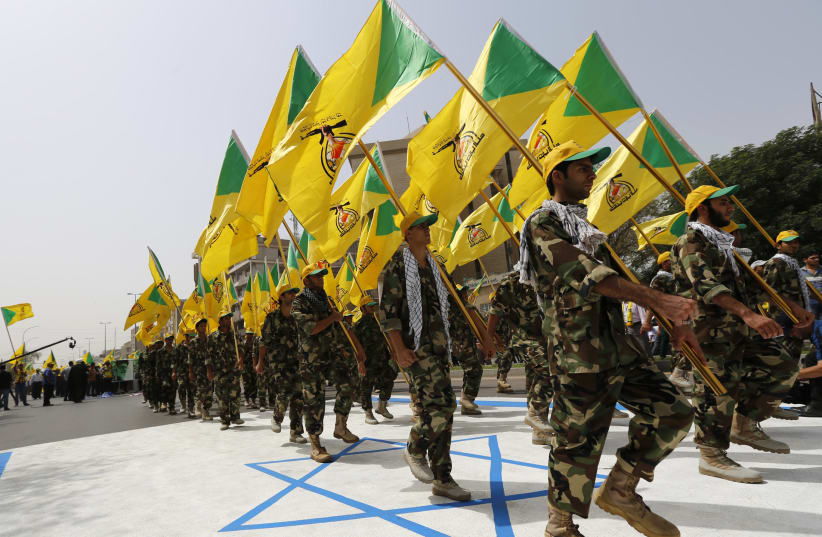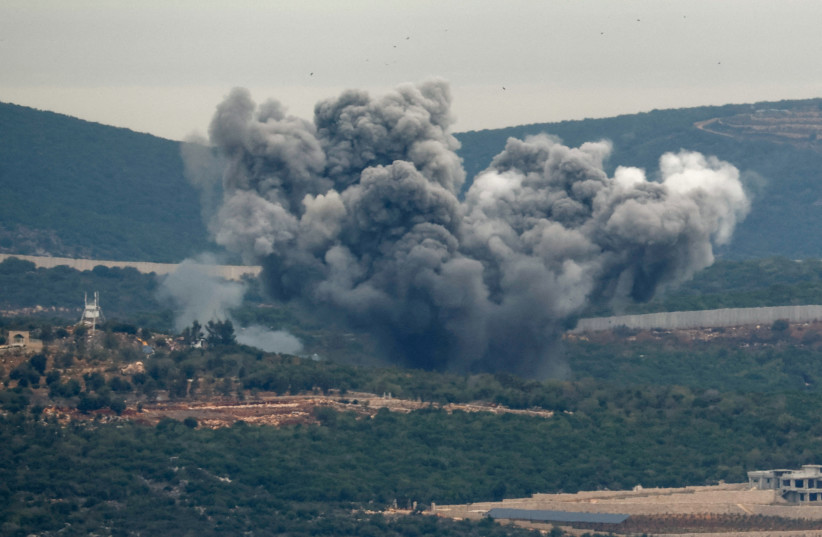The Lebanese group backed by Iran buried six more of its fighters on Wednesday, their coffins draped in its yellow flag.
By REUTERS DECEMBER 20, 2023 19:47

Hezbollah is paying a growing price in weeks of hostilities with Israel that have killed more than 100 of its fighters, but does not foresee all-out war even as the toll increases and the conflict grinds on, sources familiar with its thinking say.
The Lebanese group backed by Iran buried six more of its fighters on Wednesday, their coffins draped in its yellow flag. They were the latest to die in its deadliest confrontation with Israel since they went to war in 2006.
Hezbollah has been trading fire with Israel at the border since its Palestinian ally Hamas attacked Israel on Oct. 7, igniting a conflict that has drawn in the heavily armed group and other Iran-aligned factions across the Middle East.
But the violence has largely been contained to areas at the border, shaped by what observers have called unwritten rules of engagement between adversaries that have long threatened each other with catastrophic damage in the event of war.
Speaking at a funeral in the Hezbollah-controlled southern suburbs of Beirut, Hezbollah official Sheikh Yousef Srour said the group had taken “an oath to support the Gaza front” to the end and to reduce the pressure on it “as much as possible.”

But Hezbollah was acting in a way that “does not detonate the situation in general,” he told Reuters.
One of the sources familiar with Hezbollah thinking said “the rules” governing this confrontation “still stand,” speaking on condition of anonymity due to the sensitivity of the matter. The assessment was echoed by two other sources.
“When Israel goes a bit deeper, Hezbollah goes a bit deeper, and that’s where the matter stops,” the source said.
“The southern front is governed by undeclared rules of engagement but with any big mistake, matters can spin out of control into total war,” Nabil Boumonsef, deputy editor-in-chief at Lebanon’s Annahar newspaper, said.
Israel has said it is not seeking to open a front in the north. Israeli Prime Minister Benjamin Netanyahu has warned that Beirut would be turned “into Gaza” if Hezbollah started an all-out war.
But with more than 80,000 Israelis having fled towns and villages in the north, Israel has also said it wants to see Hezbollah pushed back from the border in line with a UN resolution that ended the 2006 war.
“We will bring back the residents of the north to their homes on the border after full security will be restored. We prefer to do so via understanding, ensuring that the border region is clear of terrorists and does not allow the direct threats of our citizens,” Israeli Defence Minister Yoav Gallant said on Dec. 18.
“If such a process will not be implemented diplomatically, we will not hesitate to act,” he said.
Tens of thousands of Lebanese have also fled the border area.
US doesn’t want wider war
Standing alongside Gallant, US Defense Secretary Lloyd Austin said the United States did not want to see the conflict widen into “a larger war or a regional war.”
“We call upon Hezbollah to make sure that they don’t do things that would provoke a wider conflict,” he said.
Other Hezbollah funerals took place on Wednesday in villages just meters from the Israeli border.
Hezbollah fighters in combat fatigues congregated around coffins in scenes unimaginable when the adversaries were waging all-out war in 2006. The funerals were broadcast by the group’s al-Manar television.
Hezbollah lost 269 fighters in the 2006 conflict.
The ferocity of the exchanges has oscillated. The violence stopped completely during a week-long ceasefire in Gaza, and resumed when it collapsed.
On Dec. 10 – one of the worst days yet – Hezbollah launched explosive drones and its powerful “burkan” (volcano) rockets at Israeli positions and Israeli airstrikes rocked south Lebanon, destroying five homes in one town.
Hezbollah says the flight of Israelis from the area is an accomplishment of its campaign, and that its attacks have kept the Israeli army busy on a second front as the Gaza war wages.
In Lebanon, some 18 civilians have been killed. In Israel, the hostilities have killed at least seven soldiers and four civilians.
Hezbollah’s dead include members of its elite Radwan force.
The source familiar with Hezbollah thinking said the conflict has been like a “live maneuver” for the group, with lessons for any future war, but at “a price.”
Content retrieved from: https://www.jpost.com/israel-hamas-war/article-778894.